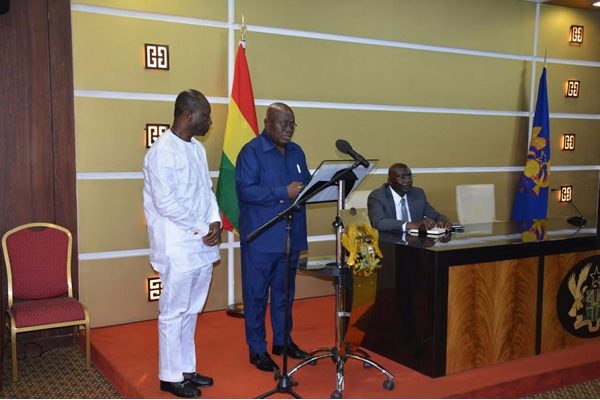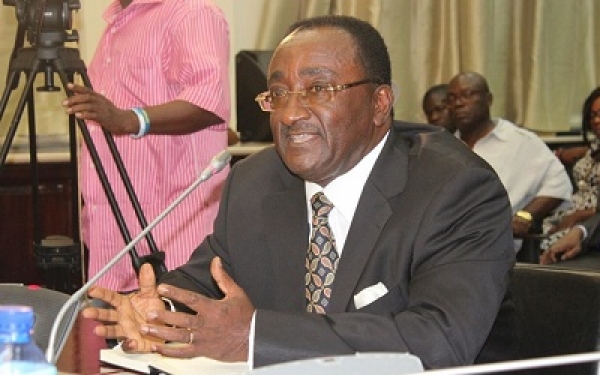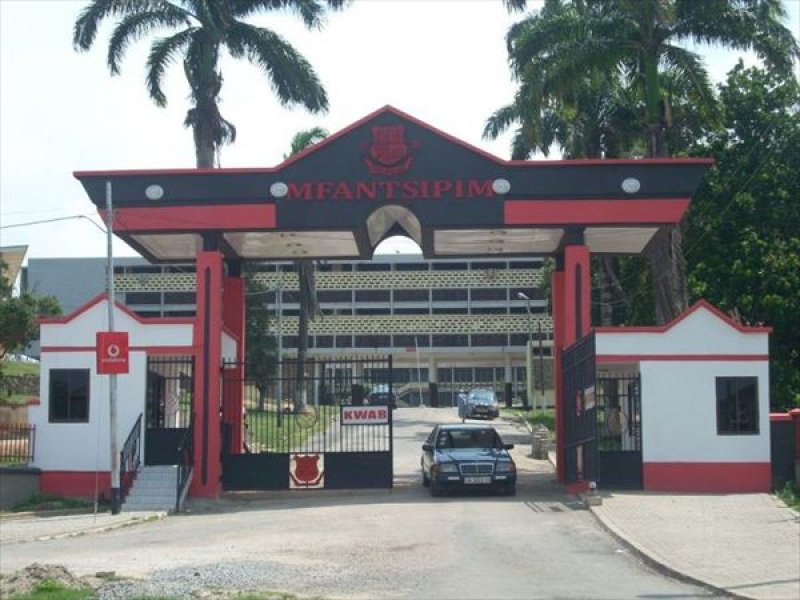Exim Bank to be operational by September
- Posted on
- Comment
 The integration of Eximguaranty Company Ghana Limited with the Export Trade, Agricultural Investment Fund (EDAIF) and the Export Finance Company (ECF) into an Exim bank is expected to materialise by September this year.
The integration of Eximguaranty Company Ghana Limited with the Export Trade, Agricultural Investment Fund (EDAIF) and the Export Finance Company (ECF) into an Exim bank is expected to materialise by September this year.
As a result, high-level discussions with shareholders and expected legal procedures are currently ongoing to ensure a successful integration for the benefit of the economy.
“Consultants were appointed and they have submitted their reports and so there is a committee which is assisting the Ministry of Finance to finally bring this idea to a closure,” the board chairman of Eximguaranty and a member of the committee, Mr Felix Ntrakwah, told the GRAPHIC BUSINESS on the sidelines of the annual general meeting of Eximguaranty.
“Actually, it was intended to conclude before the end of the year but the change of government slowed down things a bit. The good thing is that the current government is keen on seeing this come into fruition so there has been a series of meetings towards that,” he added.
He said the board of the yet-to-be-established Exim Bank was also keen on bringing the three companies together.
“Government is willing to see it happen as soon as possible and Eximguaranty is ready to be submerged into the Exim Bank. We have been working towards that ever since the news broke out,” he mentioned.
He noted that the Exim Bank, when fully operational, would make a major impact on businesses, especially those in the export and import business.
He said the Exim Bank would, however, not change the operations of Eximguaranty as it would still maintain its guarantee business after the integration, “so there can be a whole department of the bank providing guarantees to the small and medium enterprises in the export and import business,” he said.
He was optimistic that the business of guaranteeing would expand with the introduction of the Exim Bank.
Eximguaranty 2016 performance
Mr Ntrakwah pointed out that the company encountered several macroeconomic and operational challenges in 2016 that impacted negatively on its performance.
He said the escalating non-performing loan ratio of banks, the high cost of energy tariffs and lending rates as well as COCOBOD’s refusal to accept guarantees from non-bank financial institutions were some of the critical factors that affected the income of the company.
However, through effective strategies, he said the company was able to consolidate its market leadership position as it increased its total value of guarantees issued to GH?34.37 million, representing an increase of 22.5 per cent over the 2015 amount.
Total guarantee fees, however, declined by nine per cent to GH?1.3 million, while that of investment income also dipped by 10.82 per cent as it declined from GH?4 million in 2015 to GH?3.6 million in 2016. Total revenue also declined by 19.65 per cent.
The company also recorded deficits in both its operating profit before tax and total profit after tax, which recorded GH?279, 609 and GH?274,495 respectively.
Total assets also declined marginally by six per cent with an out-turn of GH?16.8 million, which was as a result of net claims on the guarantee fund.
Outlook for 2017
Touching on its outlook, the board chairman stated that as a company, it had reviewed the prevailing macroeconomic conditions and devised appropriate market-driven strategies to take advantage of the opportunities in the economy.
He said the board had given approval for management of the company to execute a one-year business plan which he believed would return the company unto the path of growth before the integration into the Exim Bank.
“I am also happy to announce that COCOBOD has rescinded its initial directive not to accept guarantees from non-bank financial institutions and this is expected to impact positively on our revenue and incomes especially in the area of seed fund guarantee,” he noted.
-graphic










 (Selorm) |
(Selorm) |  (Nana Kwesi)
(Nana Kwesi)